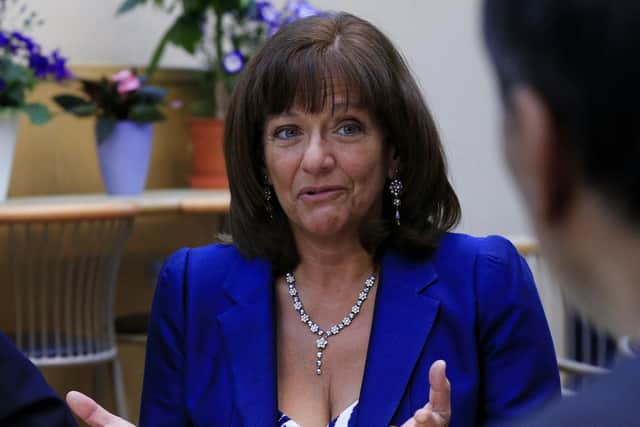How the Government can help revive a savings culture in this country - Ros Altmann
Those with just a few thousand pounds of savings are being taxed now. The current personal allowance is £1,000 a year of non-ISA savings interest, so most people with more than £20,000 in savings, assuming they earn 5 per cent interest, would start paying tax.
For higher rate taxpayers, the allowance is only £500 a year, so any savings over £10,000 will be taxed. With low interest rates since 2008, people needed much larger amounts of savings before they would pay any tax.
Advertisement
Hide AdAdvertisement
Hide AdAdditional rate taxpayers have a zero allowance and they lose 45 per cent tax of all their savings income in tax. The message being given is that savers are not valued and even those who have set aside a few thousand pounds will lose out.


Many pensioners have relied on savings to help their retirement income. In the years since 2008, savers watched helplessly as their returns dwindled to almost nothing. Many pensioners had built savings that they were relying on to supplement their retirement income, but then found they had little coming in. Younger people have lost the savings habit. Even now, as interest rates have at last actually risen, inflation has increased by far more, so savers are still losing money in real terms on their savings.
Interest rates are higher than they have been for years, but are still well below the rising cost of living. And savers are then hit with a tax charge that reduces their returns even further, making it less worthwhile to bother saving. There is a strong case for the Chancellor to increase the savings allowance. Improving returns for savers should encourage more people to save if they can.
When interest rates were falling sharply, the Government decided to give savers a tax-free allowance, but that has been frozen for several years, even though rates have gone up sharply. This means more savers will lose out as taxes reduce their savings income. More savings reduces demand in the economy, which reduces price pressures. In order to help control inflation, the Bank of England needs to encourage more people to save, rather than spend all their money straight away. However, if people think that their savings will buy them less and less in future, they are less likely to postpone their spending.
Advertisement
Hide AdAdvertisement
Hide AdIf savers constantly feel penalised for saving, controlling inflation will be more difficult. Interest rates keep being pushed up, to try to deal with cost of living pressures, but lower savings rates add demand to the economy.
This could cause the Bank of England to raise rates further, creating great risk of a sharp recession resulting from pushing rates too far too fast, without recognising the long time-lags between rate increases and falling price pressures.
Savers have had a torrid time for years but reviving a savings culture is important. It is now time to start rebuilding the once-strong savings culture our country used to enjoy. Successful economies need a pool of domestic savings to provide support during difficult times which will always arise, often unexpectedly.
Baroness Ros Altmann is a British life peer and former pensions minister.